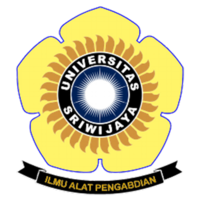Peningkatan Kualitas Lahan Melalui Pemanfaatan Limbah Kelapa Sawit (Studi Kasus di Perkebunan Kelapa Sawit PT. Waimusi Agroindah)
Abstract
Priatna et al, 2019. Land Quality Improvement Through the Utilization of Palm Oil Waste (Study Case of PT. Waimusi Agroindah Palm Oil Plantation). pp. 421-429.
Oil palm plantations are one of the natural resource-based businesses that have strategic roles and contributions to the Indonesian economy. Increasing the development of the oil palm plantation sector needs to be balanced with a good environmental management, control and preservation system. The application of clean technology is one part of sustainable and environmentally friendly development that needs to be applied in the stages of waste management. This research activity aimed to determine the effect of palm oil liquid waste utilization (LCPKS) on the quality of land in oil palm plantations of PT. Waimusi Agroindah, Mesuji Raya District, Ogan Ilir Regency, South Sumatra. The dose of LCPKS utilized was 218.77 m3 / ha / year from the 8th pool (aerobic pond) which was transported using a 15,000 liter capacity tank to the study block. The distribution of LCPKS in the study block was carried out by longbed measuring 2.5 x 1.5 x 0.25 m which was interconnected with a small ditch in a row. The block used as a comparison (control block) was only given conventional fertilizer N, P and K without LCPKS. Changes in land quality were assessed by observing soil properties in 6 layers with a depth of 20 cm in each layer and through crop productivity data. The results showed that in general the conditions of soil properties (pH, organic C, N-total P available, K-dd and elements Na, Ca and Mg) experienced an increase that could be seen up to a depth of 40 cm. The element that experienced the most increase was the element P, whereas in the N and K elements the increase that occurred was not too significant. Based on productivity data, oil palm plants in the study locations have higher TBS harvests compared to control locations. The increase in plant productivity in the study area increased by an average of 22.01% when compared to control land that was not applied by LCPKS. LCPKS utilization activities on land are considered to have a positive impact, provided that N and K fertilizers are still needed to further optimize plant growth & productivity.
Oil palm plantations are one of the natural resource-based businesses that have strategic roles and contributions to the Indonesian economy. Increasing the development of the oil palm plantation sector needs to be balanced with a good environmental management, control and preservation system. The application of clean technology is one part of sustainable and environmentally friendly development that needs to be applied in the stages of waste management. This research activity aimed to determine the effect of palm oil liquid waste utilization (LCPKS) on the quality of land in oil palm plantations of PT. Waimusi Agroindah, Mesuji Raya District, Ogan Ilir Regency, South Sumatra. The dose of LCPKS utilized was 218.77 m3 / ha / year from the 8th pool (aerobic pond) which was transported using a 15,000 liter capacity tank to the study block. The distribution of LCPKS in the study block was carried out by longbed measuring 2.5 x 1.5 x 0.25 m which was interconnected with a small ditch in a row. The block used as a comparison (control block) was only given conventional fertilizer N, P and K without LCPKS. Changes in land quality were assessed by observing soil properties in 6 layers with a depth of 20 cm in each layer and through crop productivity data. The results showed that in general the conditions of soil properties (pH, organic C, N-total P available, K-dd and elements Na, Ca and Mg) experienced an increase that could be seen up to a depth of 40 cm. The element that experienced the most increase was the element P, whereas in the N and K elements the increase that occurred was not too significant. Based on productivity data, oil palm plants in the study locations have higher TBS harvests compared to control locations. The increase in plant productivity in the study area increased by an average of 22.01% when compared to control land that was not applied by LCPKS. LCPKS utilization activities on land are considered to have a positive impact, provided that N and K fertilizers are still needed to further optimize plant growth & productivity.
Full Text:
PDFArticle Metrics
Abstract view : 597 timesPDF - 546 times
Refbacks
- There are currently no refbacks.

